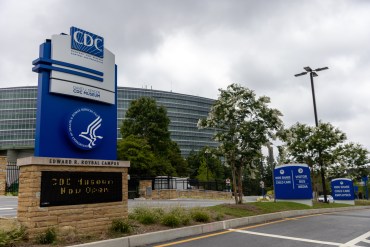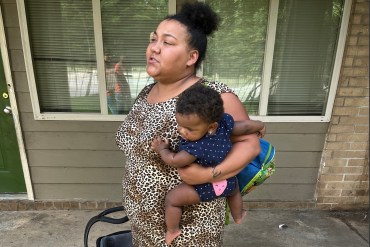Squeezed by Temp Nurse Costs, Hospital Systems Create Their Own Staffing Agencies
Hospitals have depended on travel nurses to fill shifts, especially during covid surges. Now some larger systems, reeling from high contract labor costs, have created staffing units, aiming to lure nurses who want more work flexibility and better pay than staff RNs get.
States Challenge Biden to Lower Drug Prices by Allowing Imports From Canada
Colorado has joined Florida, New Hampshire, and New Mexico in seeking federal permission to import prescription drugs from Canada. President Joe Biden endorsed the approach in his 2020 campaign but has yet to approve any state plan.
What Germany’s Coal Miners Can Teach America About Medical Debt
Coal mining ended in Germany’s Saarland a decade ago, but the transition away from coal has been smoother than in West Virginia, which has more medical debt than any state in America.
Are You an Optimist? Could You Learn to Be? Your Health May Depend on It.
Multiple studies show a strong association between higher levels of optimism and healthy aging. We ask some dedicated optimists what might explain the connection.
In Rural America, Deadly Costs of Opioids Outweigh the Dollars Tagged to Address Them
Some people say it’s reasonable for densely populated areas to receive more settlement funds, since they serve more of those affected. But others worry this overlooks rural communities disproportionately harmed by opioid addiction.
Journalists Explain Medicaid Work Requirements and Hospital Price Transparency
KHN and California Healthline staff made the rounds on national and local media this week to discuss their stories. Here’s a collection of their appearances.
Hospital Financial Decisions Play a Role in the Critical Shortage of Pediatric Beds for RSV Patients
Yes, the U.S. is experiencing an unusual spate of childhood RSV infections. But the critical shortage of hospital beds to treat ailing children stems from structural problems in pediatric care that have been brewing for years.
More States to Consider Extending Postpartum Medicaid Coverage Beyond Two Months
Fifteen states haven’t moved to extend Medicaid coverage for new moms beyond the minimum of 60 days after birth. But at least four of those holdout states — Montana, Wyoming, Missouri, and Mississippi — are expected to consider proposals to extend coverage in their upcoming legislative sessions.
Paxlovid Has Been Free So Far. Next Year, Sticker Shock Awaits.
The government soon will stop paying for the covid drug that has proved to be the most effective at keeping patients alive and out of the hospital.
Florida Leaders Misrepresented Research Before Ban on Gender-Affirming Care
The Florida policy backed by Gov. Ron DeSantis relies on one key statistic that many experts question.
Much of the CDC Is Working Remotely. That Could Make Changing the Agency Difficult.
Like many U.S. workplaces, the Centers for Disease Control and Prevention went remote during the pandemic. Most of the agency’s staff members haven’t returned to the office full time, raising concerns about the CDC’s ability to reform itself after recent stumbles.
Journalists Discuss Medicaid Rules, Opioid Settlement Funds, and the Public Health Workforce
KHN and California Healthline staff made the rounds on national and local media this week to discuss their stories. Here’s a collection of their appearances.
The Business of Clinical Trials Is Booming. Private Equity Has Taken Notice.
Private equity-backed Headlands Research heralded its covid-19 vaccine trials as a chance to boost participation among diverse populations, then it shuttered multiple sites that conducted them.
Her Apartment Might Have Put Her Son’s Health at Risk. But ‘I Have Nowhere Else to Go.’
The United States is suffering from a severe shortage of affordable housing. But elected officials have done little to fix a problem that puts many Americans at greater risk for sickness and shortens lives.
Racial Disparities in Lung Cancer Start With Research
Improving lung cancer outcomes in Black communities will take more than lowering the screening age, experts say. Disparities are present in everything from the studies that inform when people should get checked to the availability of care in rural areas.
An Unexplained Injury Discovered After Eye Surgery. What Should Happen Next?
Some doctors and medical practices voluntarily give rebates on a bill if an injury occurs during a procedure, while others will not, an expert says. Here’s how patients can respond.
When Malpractice Occurs at Community Health Centers, Taxpayers Pay
Federally funded clinics and their doctors are protected against lawsuits by federal law, with taxpayers footing the bill. The health centers say that allows them to better serve their low-income patients, but lawyers say the system handcuffs consumers with a cumbersome legal process and makes it harder for the public to see problems.
‘An Arm and a Leg’: When Insurance Won’t Pay, Abortion Assistance Funds Step In
Privacy concerns and coverage limits have long made insurance an unreliable option for abortion access. For decades, abortion funds have been stepping in to help people pay for what they see as essential health care.
Schools, Sheriffs, and Syringes: State Plans Vary for Spending $26B in Opioid Settlement Funds
The cash represents an unprecedented opportunity to derail the opioid epidemic, but with countless groups advocating for their share of the pie, the impact could depend heavily on geography and politics.
Treating Long Covid Is Rife With Guesswork
With a dearth of evidence on effective treatments for long covid, patients and doctors in 400 clinics around the country still rely on trial and error.


























